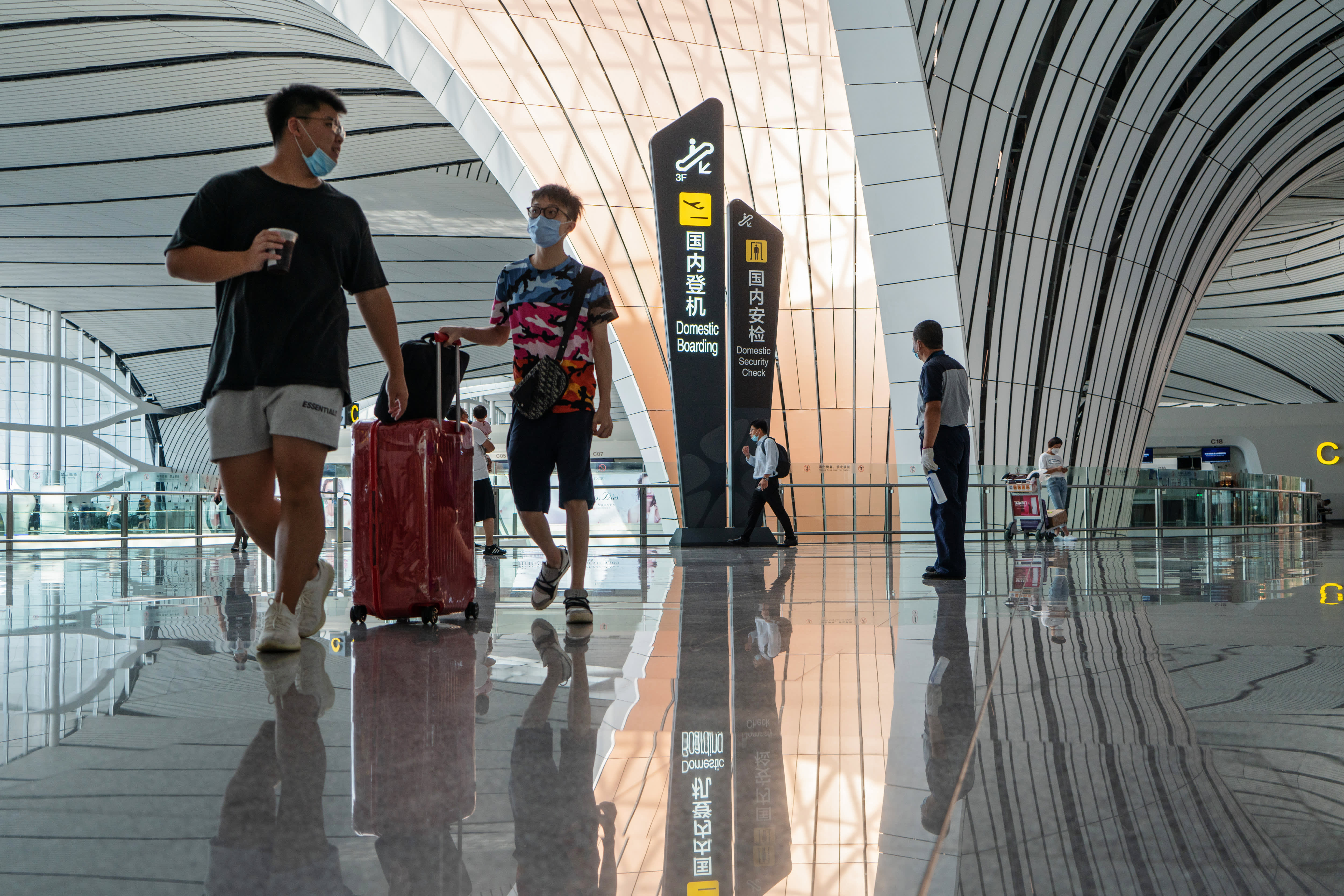
Travelers pass through Beijing Daxing International Airport in Beijing, China, on Tuesday, August 25, 2020.
Yan Cong | Bloomberg | Getty Images
China is facilitating the entry into the country of foreigners who have been inoculated with coronavirus vaccines made in China, after closing its borders for international travel more than a year ago because of Covid-19.
Several Chinese embassies around the world – including those in the United States, UK, India, Israel and the Philippines – issued notices on Monday outlining ways for foreigners to apply for visas to enter China.
But the instructions only apply to those who have been completely vaccinated using Covid-19 vaccines made in China and have the vaccination certificate to prove it.
To be clear, people with valid residence permits can enter China without new visas. Those without Chinese vaccines can also apply for visas, but will need stronger reasons or specific documents to meet the requirements.
Vaccine nationalism is a possibility that cannot be ruled out, given the absence of further explanations.
Chong Ja Ian
Associate Professor of Political Science
Chong Ja Ian, an associate professor of political science at the National University of Singapore, discussed possible motives for China’s move.
“Vaccine nationalism is a possibility that cannot be ruled out in the absence of further explanation,” he told CNBC in an email.
Chong also said that some observers suggest that this is a way for China to get more use and recognition of its vaccines or get countries to approve their vaccines faster.
China has developed five vaccines and 34 countries have approved at least one Chinese vaccine, according to CNBC calculations based on a Covid-19 vaccine tracking site.
For comparison, the Pfizer-BioNTech shot was approved by 72 countries, while the Oxford-AstraZeneca vaccine was approved in 74 countries.
Chinese vaccines have been met with some skepticism because the information is less available compared to that produced by Western pharmaceutical companies.
Covid-19 was first reported in China, in the city of Wuhan, before it spread to the rest of the world. Coronavirus is largely under control in China now, but the country’s borders have remained largely closed to foreigners.
Entry requirements
Notification of each embassy differed in wording, but in general, foreigners in certain countries who have been fully vaccinated with Chinese vaccines require fewer documents to apply for visas. They are also allowed in the country for several reasons – although tourism is not one of them.
For example, the Chinese Embassy in the United Kingdom has stated that those applying for commercial purposes will no longer need to submit a letter of invitation from provincial governments or trade departments. Those who do not have a Chinese vaccine will still have to submit a letter of invitation to apply, based on the visa requirements announced in November.
China has also expanded the scope of those eligible to apply for a visa for humanitarian purposes. Those in the UK who are looking to enter the country to reunite with their families can now apply if they have taken Chinese photos.
Without the Chinese vaccine, foreigners in the UK can only apply to enter if a family member is in critical condition and in need of care or if it is necessary to deal with funeral matters in China.
The country’s quarantine measures of up to 21 days still apply where relevant and negative Covid tests will have to be submitted. Applicants should wait 14 days after receiving a vaccine made in China before applying for a visa to enter China.